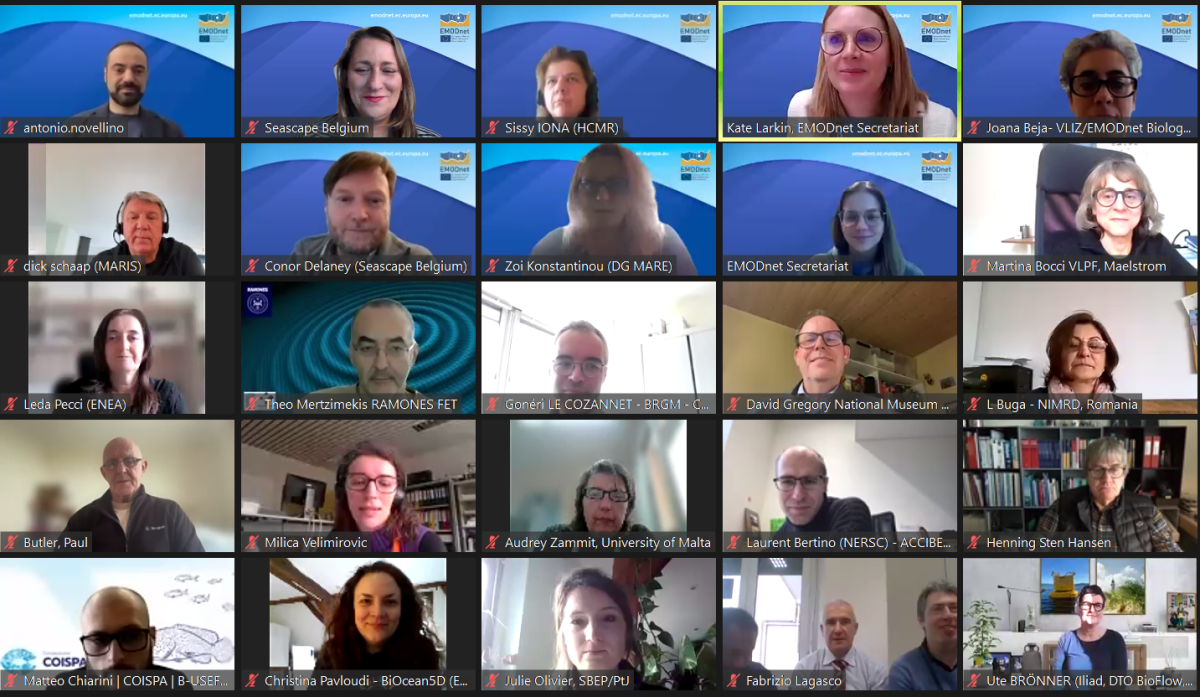Organised by the EMODnet Secretariat, Data Ingestion and thematics, in collaboration with DG MARE and CINEA, the webinar focused on how EMODnet can support European Research and Innovation (R&I) projects, including the use of EMODnet’s marine knowledge in EU R&I, demonstrations of the EMDOnet Data Ingestion workflow, and guidance on how R&I projects can optimize the collection, curation and submission of FAIR data and metadata to EMODnet services, and its large userbase.
One of the key takeaways from the webinar is the encouragement for EU R&I projects to adopt community standards, particularly those established within EMODnet, when developing their Data Management Plans (DMPs). These plans not only govern data collection and processing but also emphasize long-term data preservation and accessibility. By aligning with EMODnet community standards, projects ensure that their data becomes FAIR (Findable, Accessible, Interoperable, Reusable) and machine-readable, enhancing its usability and impact.

Collaboration emerges as a central theme in effective data management. R&I projects are advised to design and implement their DMPs in collaboration with marine data management infrastructures, especially national nodes feeding into EMODnet. These collaborations provide access to standards and tools for data and metadata submission, along with facilitating long-term data archiving for sustainability and accessibility. Early engagement with EMODnet is also encouraged, allowing projects to explore data flow strategies and ensure the long-term storage and uptake of their data into EMODnet as a European Commission (EC) marine data service.
Moreover, the webinar emphasized the adoption of common metadata and data formats aligned with marine community practices for seamless integration into existing data systems. This approach not only enables easy integration of datasets but also ensures their reusability, thereby further amplifying the impact of the research. EMODnet Ingestion stands ready to support EU R&I projects throughout their data management journey, helping in formulating and deploying DMPs, reviewing DMPs before publication, potential matchmaking with relevant data centers, and access to a wealth of expertise within its network.
In conclusion, the webinar presented guidelines and recommendations for European projects submitting marine data to EMODnet for Horizon Europe and the EU Mission Restore our Ocean and Waters. EMODnet serves as a crucial platform for data sharing, integration, and visibility within the scientific community. By adhering to community standards, collaborating with data management infrastructures, and engaging with EMODnet from the outset, EU R&I projects can maximize the impact and accessibility of their research data. These recommendations serve as a roadmap for success, ensuring that valuable research data contributes effectively to the broader goals of marine science and sustainability.
You can watch the webinar recording, the agenda and presentations slides. The guidelines presented during the webinar have been published on the EMODnet website.
